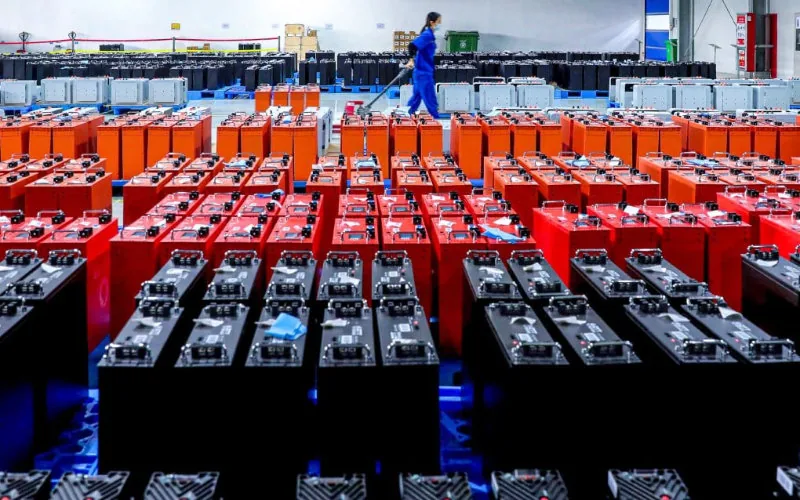Chinese Auto Industry Invests $10 Billion in Moroccan Manufacturing Hub

China is investing massively in Moroccan factories, particularly in the automotive sector, for several reasons.
According to an estimate, investments in Morocco by Chinese energy, electric vehicle, and battery producers have exploded in recent years, reaching $10 billion in this sector, reports the New York Times, adding that dozens of Chinese automotive companies are setting up in Morocco, including battery manufacturer Gotion High-tech. In 2023, CNGR Advanced Material Co., a Chinese battery component manufacturer, had partnered with the African private investment fund Al Mada to build an industrial base in Morocco. With a total investment exceeding $2 billion, they planned to start production of battery materials at a new site in Jorf Lasfar, on Morocco’s Atlantic coast, this year 2025.
In July 2024, eight Chinese manufacturers announced plans to establish new factories to produce electric vehicle parts near Tangier and in industrial parks near the Atlantic Ocean, which could qualify for $7,500 credits for car buyers in the United States. They also planned to expand their investments to other countries that share free trade agreements with the United States, including South Korea and Mexico. This Chinese strategy has been implemented since President Joe Biden enacted the Inflation Reduction Act, the $430 billion American law designed to combat climate change.
These massive Chinese investments in Moroccan factories are explained by the fact that Morocco is at the gateway to Europe and Africa and has been building an "automotive industrial ecosystem" there for 20 years, said Alexandre Kateb, economist and founder of the Multipolarity Report, a strategic consulting platform. The kingdom has a sophisticated transport network, including ports like Tangier-Mediterranean, and significant phosphate reserves, used in car battery production. The country has also engaged in a rapid transition to clean energy. According to Auto World Journal, Morocco became the leading car exporter to the European Union in 2023, surpassing China, Japan, and India.
Other major assets: Morocco has a free trade agreement with the European Union, which serves as connection nodes in a global trading system that is being reshaped around an obstacle course of high tariffs, trade restrictions, and geopolitical rivalries. But China won’t be able to take advantage of these benefits for long. Already in 2024, the Biden administration blocked Chinese electric vehicles by imposing 100% tariffs, and the European Union increased its tariffs on Chinese electric vehicles up to 45%. Back in the White House, Donald Trump increased tariffs on China up to 145%.
Moreover, it is not excluded that the Trump administration may pressure Morocco - possibly by threatening to increase tariffs - to adopt a position for or against China. Morocco "considers China as a major partner," said Ahmed Aboudouh, associate researcher at the Middle East and North Africa program at Chatham House, but it is "aware of the risk" that the American president could crack down on countries that trade with China.
Since 2004, a free trade agreement has linked Morocco and the United States, but the Trump administration imposes a 10% tariff on Moroccan exports. However, Morocco has not been threatened by the additional punitive tariffs imposed on countries like Mexico, Vietnam, and Thailand.
Related Articles
-

Tangier’s Tourism Boom: Paradise Lost for Middle-Class Moroccans as Prices Soar
26 August 2025
-

Moroccan Milk Boycott Sours Danone’s Profits: How Social Media Activism Cost a Giant Millions
26 August 2025
-

Moroccan Blue Pearl Chefchaouen Ranks 30th Among World’s Most Beautiful Villages
25 August 2025
-

Moroccan Dirham Strengthens Against Euro as Official Reserves Hit 408 Billion
25 August 2025
-

Spanish Engineering Giant Exits Morocco: Grupo Mecanica Del Vuelo Shuts Casablanca Operations After 11 Years
25 August 2025